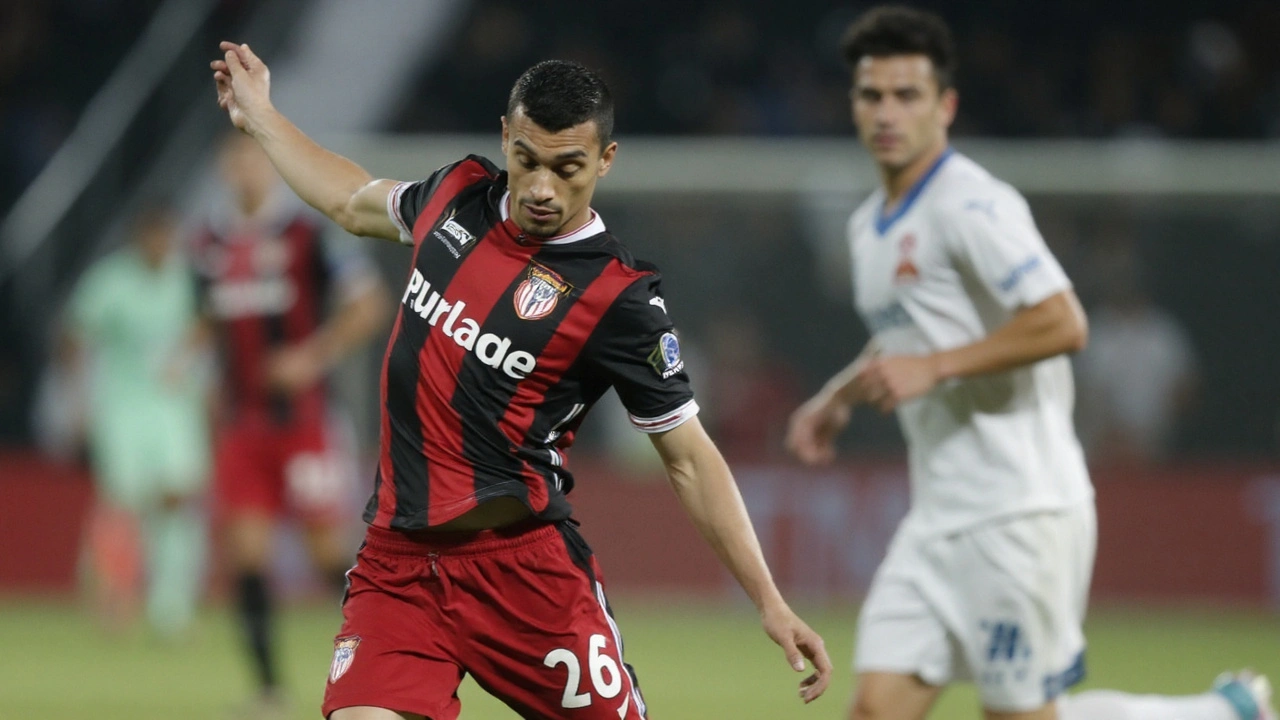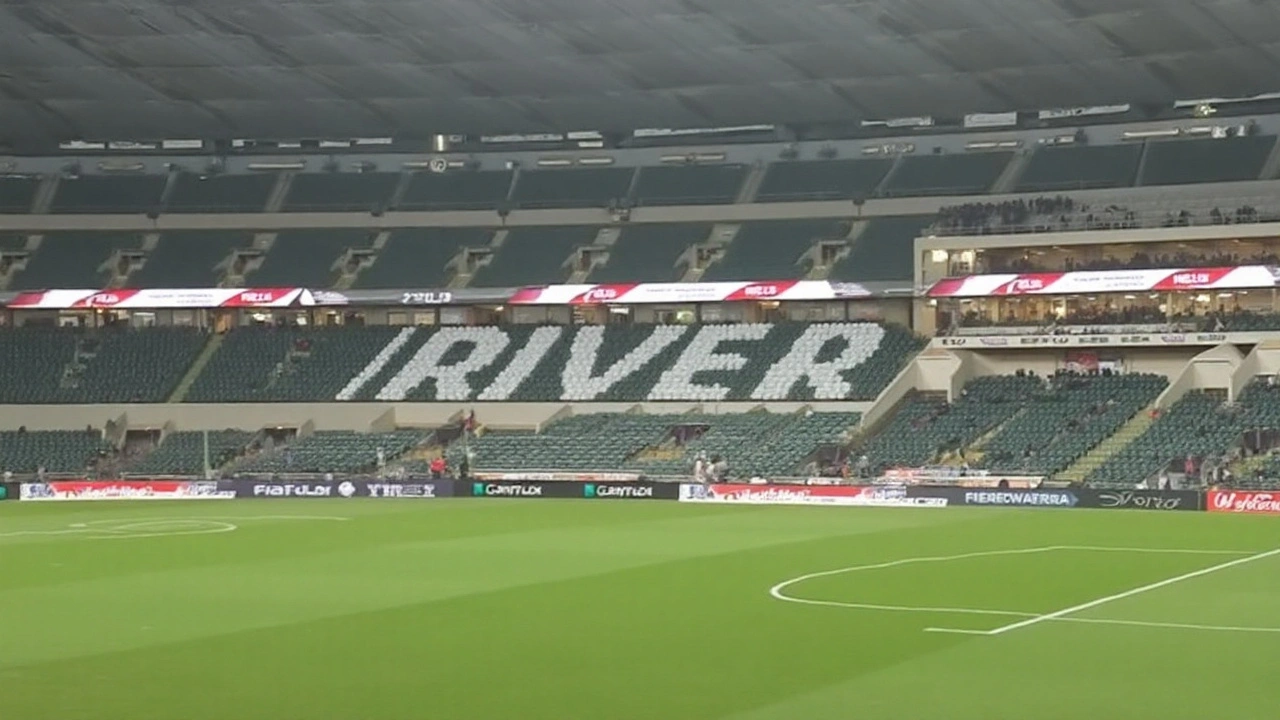25 Sep 2025
- 20 Comments
Tactical Choices from the Sidelines
When Palmeiras touched down in Buenos Aires, the vibe in the locker room was all about continuity. Coach Palmeiras manager Abel Ferrer didn’t shake up his squad; instead he fielded the same eleven that had carried the team through the group stage and the earlier knockout round. The rationale was simple: in a two‑legged tie, rhythm matters more than any experimental tweak.
Ferrer's lineup featured a balanced mix of seasoned veterans and emerging talents. Up front, the front two combined pace with intelligent movement, creating space for the midfield engine to link play. The midfield trio, anchored by a deep‑lying playmaker, kept the ball moving laterally, limiting River’s chance to press high. Defensively, the back four stayed compact, with a sweeper‑style centre‑back stepping out only when necessary.
River Plate entered the match with a reputation for fluid attacking football, but Ferrer’s set‑up neutralized that threat. By narrowing the channels and forcing River to play wide, Palmeiras nudged the Argentine side into less dangerous zones. The result? A disciplined defensive display that barely gave away clear chances, while still allowing the Brazilian side to launch quick counters.
Substitutions were minimal. Ferrer only made a late change to freshen the attack after securing a 2‑1 lead, underscoring his confidence in the starting group. The consistency paid off: the same formation that stifled River’s offense also provided the platform for the decisive goals.

Implications for the Return Leg
The 2‑1 victory in Buenos Aires handed Palmeiras a crucial cushion. With a one‑goal advantage and an away goal, the Brazilian side needed just a draw at Allianz Parque to book a semi‑final spot. That cushion, however, didn’t translate into complacency. Ferrer’s decision to keep the starting eleven intact for the second leg signaled his belief that the system worked and didn’t need tweaking.
For River Plate, the loss flipped the narrative. They now faced a must‑win scenario at home, but they also had to guard against conceding another away goal, which would make the aggregate score even tougher to overturn. Their coach knew the defensive shape that Palmares had employed would likely reappear, forcing the Argentine side to adjust their own tactics – perhaps by tightening midfield pressure or exploiting set‑piece opportunities.
Fans on both sides had a lot to discuss. Palmeiras supporters were buzzing about the coach’s boldness in sticking with the same eleven, while River fans worried about the defensive rigidity that stymied their beloved attacking style. Meanwhile, neutral observers pointed out that Ferrer’s approach highlighted a growing trend in South American football: coaches opting for stability over rotation in high‑stakes knockout ties.
As the two teams prepared for the second leg, the narrative centered on whether Palmeiras could hold on to their narrow lead or whether River would find a way to break down the defensive shield. The stage was set for a dramatic showdown at Allianz Parque, where the Brazilian crowd would be eager to see their side either seal the deal or fend off a fierce comeback.


Prince Fajardo
September 25, 2025Wow, Palmeiras really decided to reinvent the wheel by not changing a damn thing.
Subhashree Das
September 26, 2025Ferrer's refusal to rotate the squad smacks of complacency. By fielding the same eleven, he handed River a predictable blueprint to study. The midfield's sideways passing, while tidy, lacked the penetration needed against a high‑press. Moreover, the late substitution felt like an after‑thought rather than a tactical masterstroke.
jitendra vishwakarma
September 26, 2025i think the back four did a gud job but the wingi sounds off maybe they need beter cormmunication.
Ira Indeikina
September 27, 2025In the grand theater of South American football, stability becomes the silent hero. When a coach trusts the same rhythm, the players echo a shared consciousness on the pitch. It is less about rigid plans and more about the subtle dance of familiarity.
Shashikiran R
September 28, 2025Sticking to the same eleven shows a lack of respect for squad depth. Teams deserve rotation to give younger talent a chance. This approach only reinforces a hierarchy that stifles growth.
SURAJ ASHISH
September 28, 2025Honestly the match was blah the tactics were bland. No surprise the result was a narrow win.
PARVINDER DHILLON
September 29, 2025Let's appreciate the effort both sides put in 🙏. Football thrives when we celebrate hard work and respect each other's journey.
Nilanjan Banerjee
September 29, 2025Ferrer's decision to retain the exact starting eleven from previous rounds reflects a deep conviction in squad chemistry.
The Brazilian side has cultivated an intricate passing lattice that thrives on players' intimate understanding of each other's movements.
By avoiding unnecessary rotation, the coach reduced the risk of disrupting the timing that had already delivered success in the group stage.
This continuity allowed the midfield trio to execute their lateral overloads with precision, stretching River's defensive lines horizontally.
The deep‑lying playmaker acted as a metronome, dictating tempo and ensuring possession remained in safe zones.
Meanwhile, the front two leveraged their synchronized runs to exploit the narrow channels that River was forced to defend.
The compact back four, anchored by a sweeper‑style centre‑back, limited space for River's wingers to infiltrate.
When River attempted to widen the play, Palmeiras' full‑backs shifted in unison, closing down the flanks swiftly.
The tactical discipline extended to set‑piece organization, where the Brazilian side displayed rehearsed routines that caught the opposition off guard.
Ferrer's late substitution, though minimal, was timed to inject fresh energy without unsettling the established rhythm.
The player brought on maintained the same positional awareness, ensuring the counter‑attack threat persisted until the final whistle.
Such a measured approach underscores the growing trend in South American knock‑out ties, where coaches prioritize stability over experimentation.
It also sends a psychological message to opponents: any deviation from the familiar formula will be met with a well‑drilled response.
River Plate, forced to adapt, found their creative outlets stifled by the predictable yet resilient structure.
In the end, the 2‑1 victory can be attributed as much to tactical constancy as to individual brilliance on the field.
sri surahno
September 30, 2025Some say the referee’s decisions are part of a larger scheme to favor certain clubs. The timing of the away goal aligns suspiciously with betting patterns. Transparency is needed.
Varun Kumar
September 30, 2025Ferrer kept the core, River will need a win.
Madhu Murthi
October 1, 2025Our boys showed why Brazilian football is the best 🔥. No need for fancy rotations when the talent is this deep.
Amrinder Kahlon
October 2, 2025Great, another masterclass in doing the same thing.
Abhay patil
October 2, 2025Keep the faith guys we got this we just need to stay focused and push forward
Amber Brewer
October 3, 2025The first leg win gives Palmeiras a solid platform. Maintaining defensive shape will be key in the return.
Kim Coulter
October 3, 2025River must understand that South American power rests with clubs that honor tradition. Their tactics lack the aggression needed to overturn a deficit.
Michelle Toale-Burke
October 4, 2025Seeing that 2‑1 win makes my heart race 😢. I wish every match felt this intense.
Amy Paradise
October 5, 2025Love the analysis! It really helps to see the tactical side of things.
Janette Cybulski
October 5, 2025I'm feeling good about the upcoming game. If Palmeiras holds the line, they'll cruise to the semis.
Mildred Alonzo
October 6, 2025Did you notice the slight shift in midfield? It seems like they are testing a new pattern but still keeping the core.
Elizabeth Bennett
October 6, 2025Celebrating the beauty of South American football brings us together. Let's enjoy the drama responsibly.